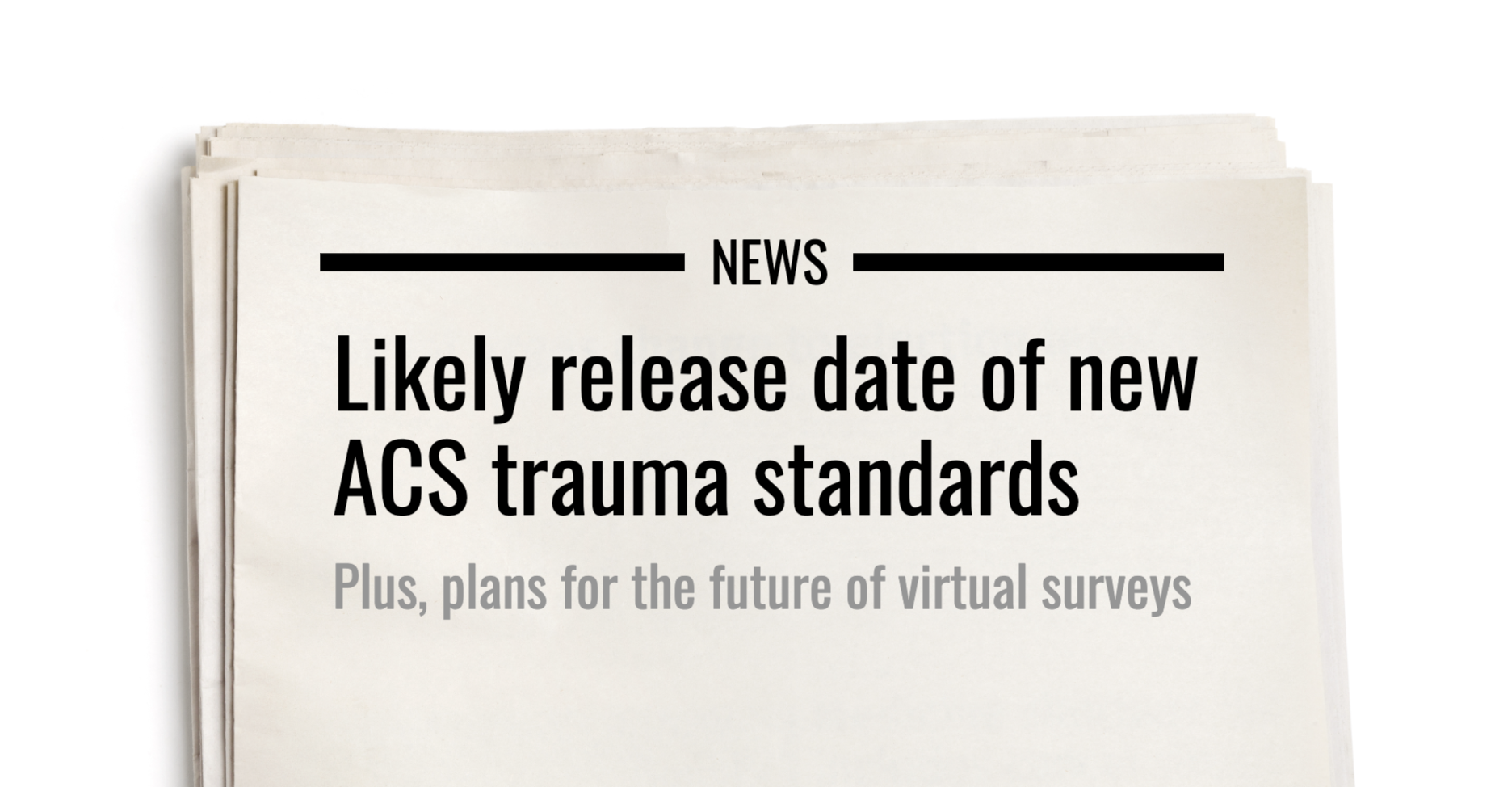The new trauma center verification standards of the American College of Surgeons (ACS) will likely be released in March 2022, according to Avery Nathens, MD, MPH, PhD, medical director of ACS trauma quality programs.
Dr. Nathens announced the expected timeline during the opening session of the 2021 Trauma Quality Improvement Program (TQIP) Annual Conference. He also explained how the ACS will use its virtual site visit process in the coming years.
When will the ACS trauma standards be available?
The new trauma center standards were approved by the ACS Committee on Trauma in late 2020. ACS leaders have been working for the last year to complete the contents of the standards book and the related compliance measures.
“Many of you have asked us about our standards revisions,” Dr. Nathens said during his November 15 session. “We are done with these revisions, [and] these revisions will be released in March.”
Dr. Nathens will discuss some of the most “impactful changes” in the new standards during the closing session of the TQIP Annual Conference on November 17.
“I’ll highlight, again, some of the major changes that you can prepare yourself for in advance of the ‘Grey Book’ coming out, likely in March,” he said.
Which ACS site visits will be virtual and which will be in-person?
The VRC piloted a virtual site review process in 2020 and rolled it out in 2021. To date, more than 200 trauma centers have completed a virtual site review.
During his TQIP session, Dr. Nathens explained how virtual and in-person visits will be used “over the ensuing year or couple of years”:
- Reverification site visits and focused visits will be conducted virtually
- Initial verification site visits and consultation visits will be conducted in-person. In-person visits will not start until July 2022 at the earliest.
According to Dr. Nathens, both reviewers and trauma center leaders have provided positive feedback on the virtual review process.
“The reviewers feel that the medical record review is done in greater detail, and they have a little bit more time to review all the materials well in advance of their visit,” he said. “The pre-selected chart review, just because they actually have to prepare fewer charts, is less onerous for trauma center staff. And overall, it’s less costly because there is no reviewer travel.”


